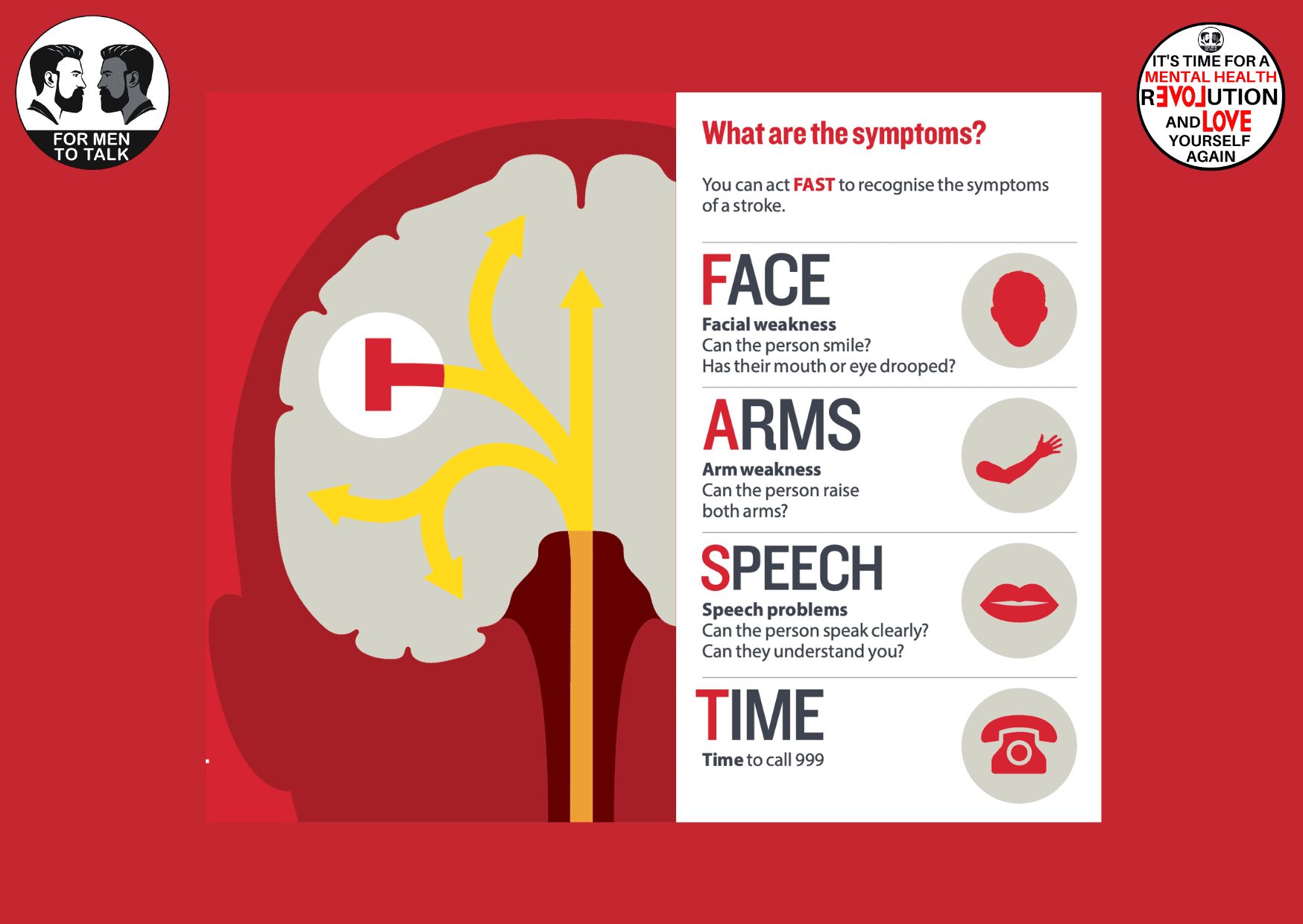The FAST campaign is to raise awareness of the symptoms of stroke.

One of the main aims of the FAST campaign is to raise awareness of the symptoms of stroke.
Some general information about stroke statistics in the United Kingdom:
-
Incidence: Stroke is a significant health concern in the UK. Each year, there were approximately 150,000 strokes in the UK. This includes both ischemic strokes (caused by a blocked blood vessel) and hemorrhagic strokes (caused by bleeding in the brain).
-
Prevalence: There were over 1.2 million stroke survivors living in the UK. Stroke survivors often require ongoing medical care, rehabilitation, and support.
-
Mortality: Stroke is one of the leading causes of death in the UK. Thousands of people died from strokes annually. However, improvements in stroke care have led to a decline in stroke-related mortality over the years.
-
Risk Factors: Common risk factors for stroke in the UK include high blood pressure, smoking, obesity, excessive alcohol consumption, and a lack of physical activity.
-
Age and Gender: Stroke can affect individuals of all ages, but the risk increases with age. In the UK, more women than men experienced strokes, primarily due to women’s longer life expectancy.
-
Region: Stroke rates and outcomes can vary by region within the UK, with some areas experiencing higher incidence and mortality rates than others. Factors such as socioeconomic status and access to healthcare can contribute to these regional disparities.
It is imperative that people can recognise a stroke when it’s happening and take prompt action.
What are the symptoms of stroke?
To help people recognise the symptoms of stroke quickly, The Stroke Association has funded research into FAST – the Face Arm Speech Test – which is used by paramedics to diagnose stroke prior to a person being admitted to hospital. By diagnosing the possibility of stroke before reaching hospital, it is possible for appropriate referral to a stroke unit to be made as quickly as possible.
What is FAST?
FAST requires an assessment of three specific symptoms of stroke.
Facial weakness – can the person smile? Has their mouth or eye drooped?
Arm weakness – can the person raise both arms?
Speech problems – can the person speak clearly and understand what you say?
Time to call 999 – stroke is always a medical emergency. (If they fail any of the tests)
The FAST campaign is an easy-to-remember mnemonic that helps people recognise the most common signs of stroke. It has been widely promoted by medical organisations, stroke foundations, and health authorities to improve public awareness of stroke symptoms and the urgency of seeking medical help. Remember that quick intervention can significantly improve the chances of a positive outcome for someone who is experiencing a stroke.